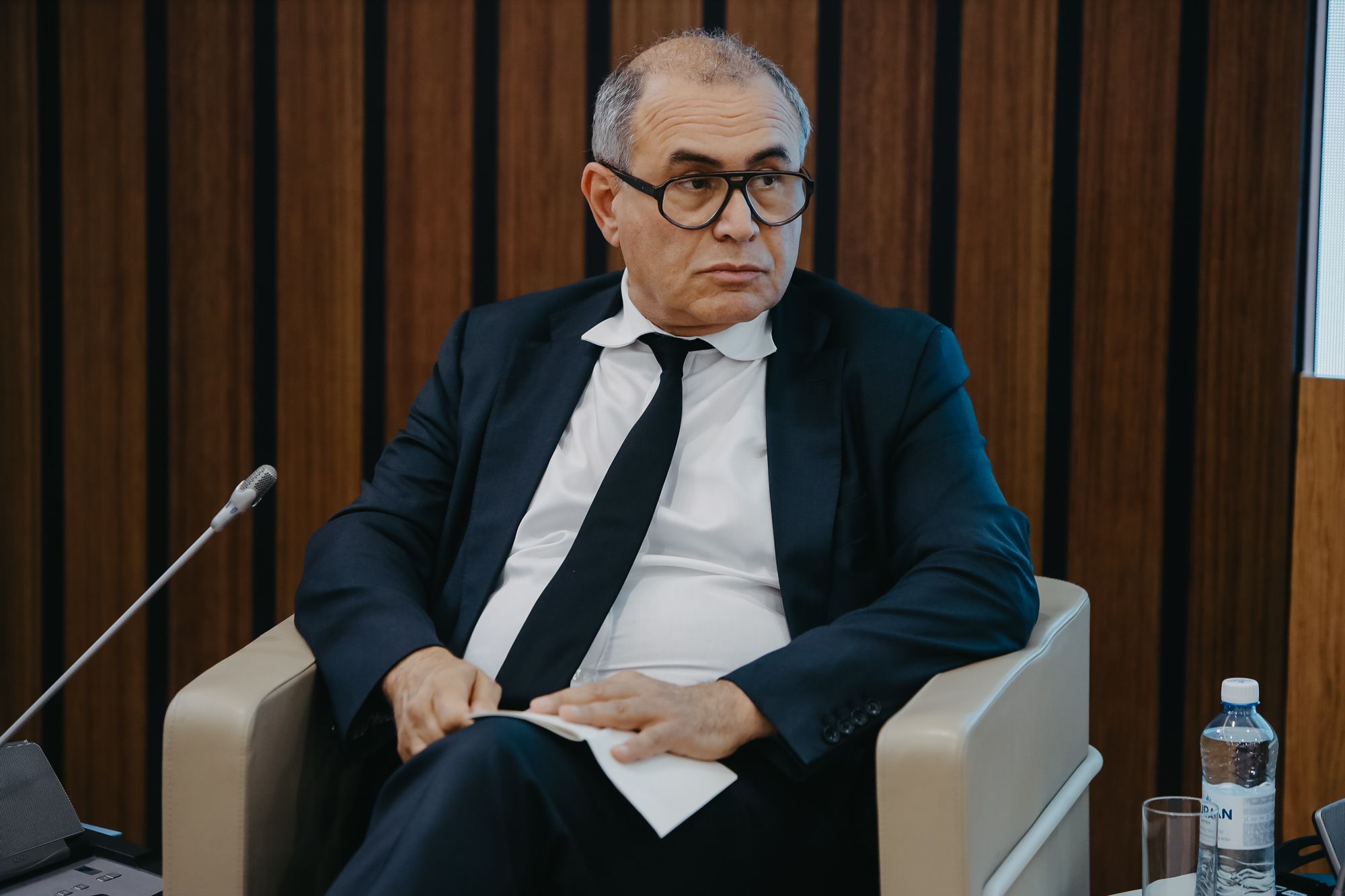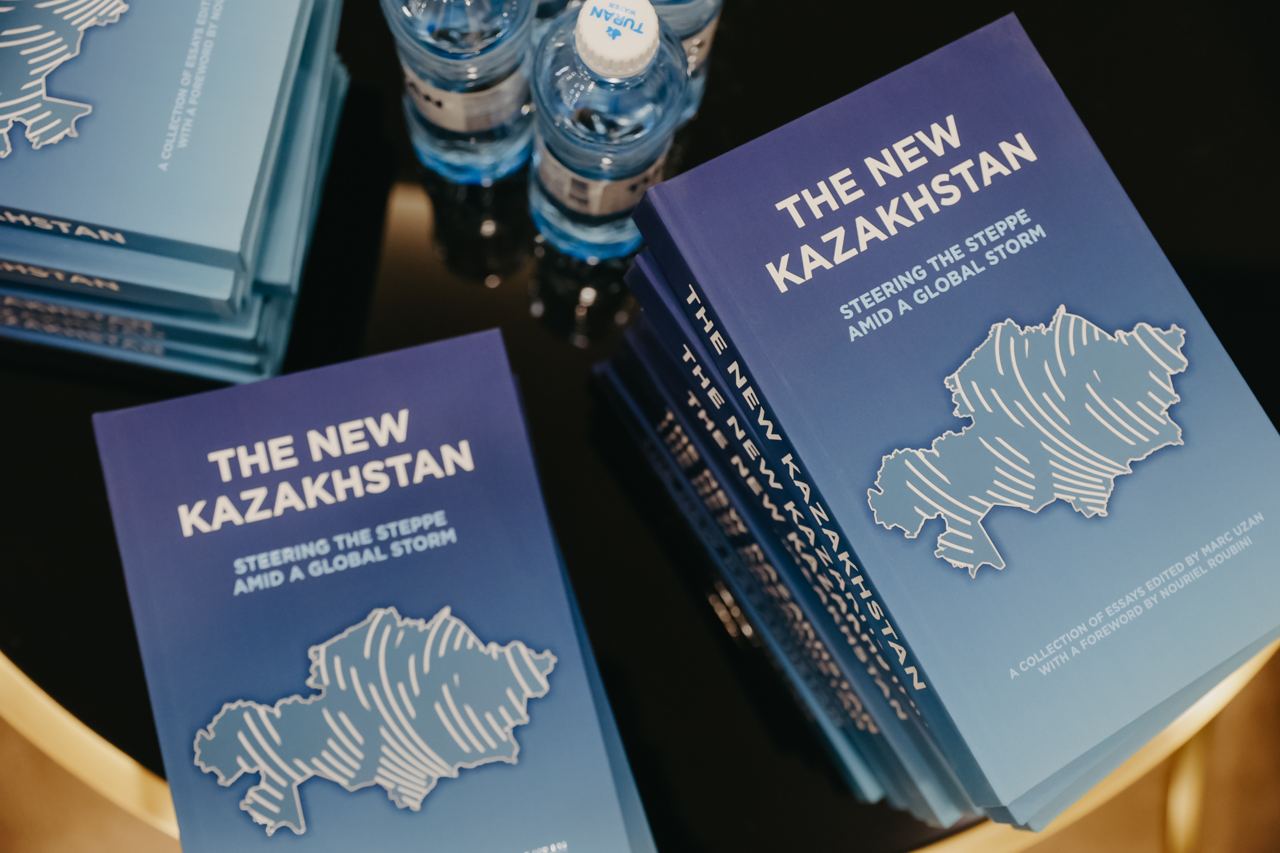ASTANA — The Astana International Forum featured a June 9 presentation of a book titled “The New Kazakhstan: Steering The Steppe Amid A Global Storm,” with renowned American economist Nouriel Roubini, known as Dr. Doom for predicting the 2008 global financial crisis. Roubini spoke to The Astana Times about his vision for Kazakhstan’s future.

Nouriel Roubini during presentation of the book “The New Kazakhstan: Steering The Steppe Amid A Global Storm,” on June 9. According to Roubini, the significance of this book is that it aids in developing an action plan for Kazakhstan that will be capable of responding to current challenges while also assisting in the design of an up-to-date national strategy. Photo credit: The Astana Times.
The book is a collection of essays by leading economists, politicians, and financiers on Kazakhstan’s ongoing reforms as it navigates the turbulent currents of global instability.
Contributors to the book included Norman Graham, professor of international relations at the University of Michigan, Stephen Pueppke, director of the College of Global and Strategic Initiatives at the University of Michigan, Hans Holzhaker, chief economist at the Central Asia Regional Economic Cooperation Program Institute, Raekwon Chang, director of the Ban Ki-moon Foundation for a Better Future, and Henning Vöpel, director of the European Policy Network Center.
Strategic position and educated labor force
Roubini emphasized the mounting risks of the so-called mega-threats, such as rising inflation, geopolitical shifts, and uncontrolled technological growth. Yet, he said, “that is the world we have to live in.”

The book is a collection of essays written by leading economists, politicians, and financiers. Photo credit: AIF.
“Most of the countries can reduce inflation and make growth sustainable and inclusive if they have the ability to implement the right type of economic and other policies that can increase their potential growth,” Roubini said.
With its strategic position and educated labor force, Kazakhstan could be included among these countries.
“Kazakhstan can have good economic and other relations with many major global powers, not just with Russia, but also China, India, Europe, the United States, and Türkiye. It is a country that has a large number of natural resources. It also has a very well-educated labor force,” he said.
According to Roubini, the country has the potential to become a crucial middle power. The term refers to a state that holds a position of influence and significance on the global stage, despite not being classified as a major world power.
“With the right governance, institutions, macroeconomic policies, and structural reforms, it can be very successful. It has already gone from a low per capita income to a middle-income country. It can become an important middle power,” he said.
Implementation is key
Roubini expressed optimism for President Kassym-Jomart Tokayev’s administration, citing the country’s progressive reforms and stressing that “implementation is key.”
“I am quite hopeful the new administration can succeed with the kind of reforms that it wants to implement, even in a world where there is risk that threatens stability and poses volatility. Good economic and other policies can lead to success and an increase in income and welfare, even in this very uncertain and volatile world,” he said.
According to him, Kazakhstan has begun to adapt to the conditions of uncertainty, and its de-oligarchization reform is a sign of significant progress.
He also discussed the country’s vast untapped potential in the food sector, suggesting this sector may transform the country into a regional driver of economic growth. Roubini warned, however, that the government’s role in the economy is excessive and should be reduced to achieve success.
“The role of small, medium, and even larger private firms could grow over time, because a lot of economic reforms and successes are driven by private sector development. I am reasonably confident that [Kazakhstan] can become very successful over time, if the various economic, monetary, financial and socio-political reforms [are coupled] with investment in human, physical, social, institutional and infrastructure capital in a country that was endowed by such a range of resources and a strategic location,” he said.
Can Kazakhstan become the next Asian Tiger?
Roubini commented on Kazakhstan’s potential to become the next Asian economic tiger after South Korea or Singapore, drawing several parallels as well as differences.
“Many of these tigers in Asia did not have natural resources, including countries like Japan, South Korea, Singapore and Hong Kong. Despite the lack of natural resources, they invested in their people, their human capital, and they were able to diversify their economy and achieve economic success,” he said.
Abundant natural resources as an opportunity
According to Roubini, Kazakhstan’s natural resources are an opportunity because they can generate capital that can be used to invest in its people. The most important lesson, he said, is that any country endowed with natural resources should diversify its economy by developing manufacturing, agriculture, finance and other types of services to avoid becoming overly reliant on its natural resources.
“The second lesson is that the success of Asia’s tigers was driven not only by producing for the domestic market. Many of these economies were small open economies. They succeeded by exporting and being competitive in the global markets. While it is large in size, Kazakhstan is relatively small in terms of population, with 20 million people. That implies that the domestic market is relatively small. But the domestic market of South Korea, Singapore, or Hong Kong is also small, but they became successful by creating goods and services and exporting them to the world. There is a whole world around Kazakhstan, not just the Central Asian countries but also Russia, China, the rest of Asia, Europe, and the United States. So, you can diversify your economy. You can be successful by diversifying the nature of your exports in a way that makes you successful and resilient over time,” he said.
The essays in the book are intended to provide a clearer understanding of the current environment in which Kazakhstan finds itself, as well as to outline some critical paths for the country’s development and the formation of New Kazakhstan, which encompasses reforms and modernization.
According to Roubini, the book is instrumental in developing an action plan for Kazakhstan to empower it to respond to current challenges, while also assisting in the design of an up-to-date national strategy. i’m

